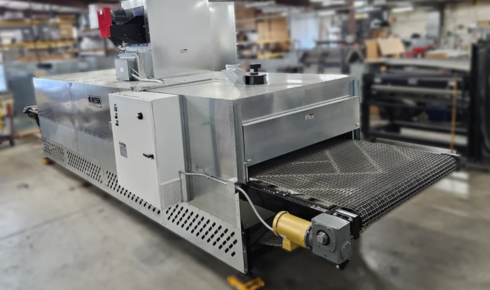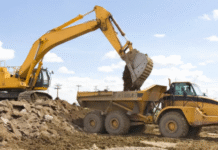Advances in heater design continue to change how manufacturers manage heat, efficiency, and long-term reliability. Engineers now work with materials that hold tighter tolerances and maintain consistent temperature under punishing industrial conditions. These upgrades give cartridge heaters and other industrial heating accessories a level of performance older builds never achieved.
New Alloy Cores Shaping Steadier Heat Transfer
Alloy cores sit at the center of custom industrial heaters and determine how effectively heat moves outward. Modern alloys are engineered to limit thermal fluctuation, allowing the core to distribute energy more evenly through the surrounding insulation and sheath. This creates tighter temperature bands, which is essential for applications that cannot tolerate wide swings.
These improved alloys also respond faster under variable loads, reducing lag time during rapid temperature changes. Facilities that rely on precision molding, sealing, or thermal cycling see immediate benefits from this consistency, making them valuable upgrades for industrial heaters USA operators who depend on repeatable performance.
High-grade Sheath Metals Extending Heater Service Life
Sheath materials shield the internal components from contamination, abrasion, and high-temperature oxidation. Upgraded stainless blends and specialty metals now outperform traditional sheathing by resisting scale buildup and thermal fatigue. They maintain structural strength even under sustained high watt densities.
Because the sheath is the first line of defense in harsh settings, longer life means fewer replacements and less downtime. Cartridge heaters built with high-grade sheaths support demanding operations in plastics, aerospace, packaging, and metal processing where reliability directly affects output.
Dense Ceramic Fillers Strengthening Thermal Conduction Paths
Ceramic insulation fills the gap between the core and sheath, and density plays a major role in how efficiently heat travels across that space. Modern ceramic fillers pack tighter, eliminating voids that once created inconsistent conduction paths. This gives custom industrial heaters a noticeably smoother temperature profile.
Higher density material also improves mechanical strength, helping the heater resist vibration and impact stress common in automated production lines. These fillers protect internal wiring and cores by keeping their positions fixed even after long periods of expansion and contraction.
Heat-resistant Polymers Enhancing Lead Exit Durability
Lead exits are exposed to bending, movement, and continuous heat bleed. New heat-resistant polymers now reinforce this area by resisting cracking and thermal softening far better than older materials. These polymers maintain flexibility while preventing electrical leakage or premature deterioration.
Their durability reduces stress on electrical connections, supporting stable performance under constant cycling. Manufacturers using industrial heating products in high-motion environments—such as packaging lines or automated feeders—benefit from longer service intervals and fewer unexpected failures.
Composite Insulators Improving Watt-load Stability
Composite insulators sit between electrical components and the outer structure, providing separation, strength, and heat management. Innovations in composite layering now deliver better watt-load stability, helping heaters operate safely at higher temperatures without degrading the insulation. This improvement is particularly important for tightly packed assemblies.
These composites withstand moisture exposure, chemical vapors, and shock loads more effectively than previous versions. As a result, custom industrial heaters built with modern insulators maintain output quality even in high-pressure manufacturing zones.
Refined Resistance Wire Blends Boosting Thermal Output Control
Resistance wire determines how heat is generated and how accurately it can be controlled. New wire blends use high-purity metals wound to deliver stable ohmic values, which improves response time and temperature accuracy. These wires also resist creep, preventing drift during extended heating cycles. Better wire stability translates into efficient power use and greater predictability for operators who depend on repeatable outputs. Cartridge heaters with advanced resistance wire blends deliver higher performance in mold heating, sealing bars, and aerospace component fabrication.
Surface-treated Metals Reducing Oxidation During Long Duty Cycles
Surface treatments now allow heater components to resist oxidation, scale, and chemical attack during long duty cycles. Processes such as passivation, nitriding, and diffusion coatings protect the metal without changing its thermal behavior. These treatments slow the breakdown of the sheath and internal elements in high-oxygen or corrosive environments. Reducing oxidation directly improves watt density tolerance and keeps performance stable even during continuous operation. Manufacturers gain longer heater life and reduced replacement frequency, which matters for operations that cannot afford downtime.
Engineered Bonding Materials Securing Uniform Cartridge Performance
Bonding materials hold internal components together and ensure uniform distribution of the heater’s expansion forces. Engineered bonding compounds now maintain strength under higher temperatures and avoid the micro-cracking issues that older adhesives experienced. Their stability keeps internal elements aligned and reduces early failure.
This uniformity is essential for applications requiring consistent thermal delivery across the entire heater length. Industrial heating elements manufacturer innovations in bonding technology have drastically reduced hot spots and created more reliable heating outcomes in tight-tolerance machinery. Modern material breakthroughs continue to elevate the performance of custom industrial heaters, giving manufacturers more efficiency, reliability, and control than ever before. Thermal Corporation provides advanced cartridge heater designs built with these innovations to support demanding commercial and industrial applications.




